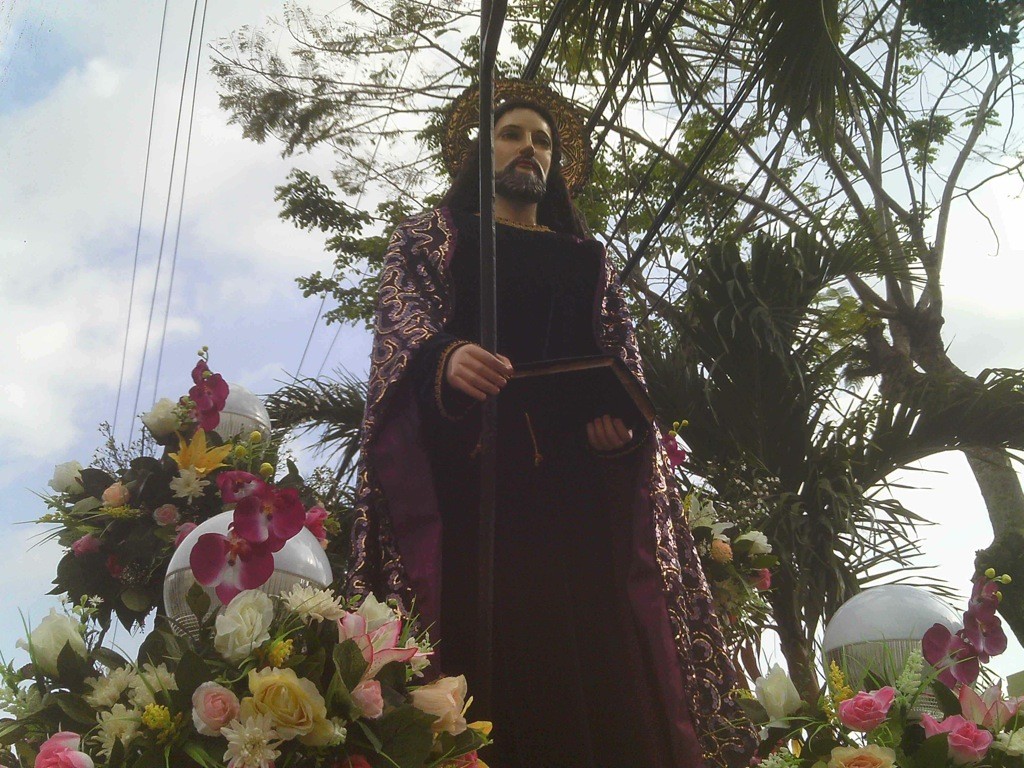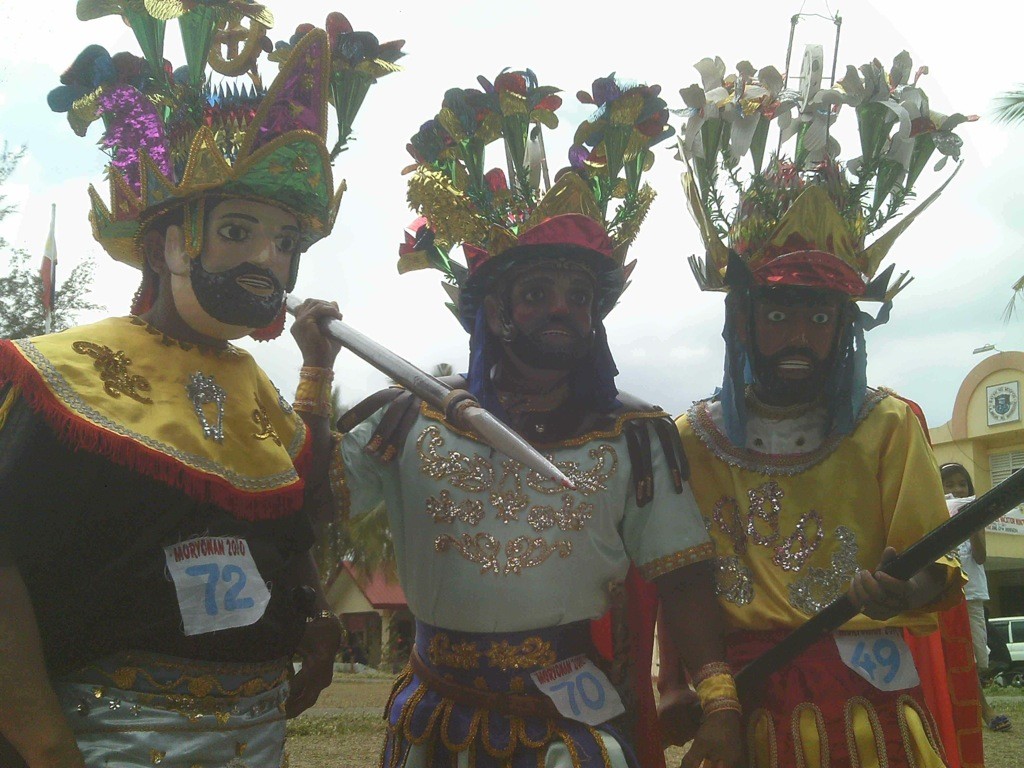The Long Good Friday…
Throughout history, and prehistory, festivals have provided the opportunity for misrule, orgies and drunkenness. And smart missionaries, whether Brahmans, Jesuits or Theravada Buddhists have always been fast to latch onto old-school pagan festivals and reskin them for the new religion.
But the Moriones, in Marinduque, the Philippines, provides a rare chance to see this process pretty close to the source. The Moriones, at its simplest, is a feast where spear-carrying men dress up in masks and helmets, paint or scarify their bodies, and pursue a scapegoat around the island before putting him (symbolically) to death.
So far, so Golden Bough. But back in 1807 some smart Jesuit clocked that the original festival refused to die, and pegged it onto Easter, and the legend not only of the crucifixion, but the centurion Longinus, murdered for his conversion to Christianity. And now, to the old mix, is added a procession of saintly floats.
Coming from Northern European Catholicism, I’m amazed at the tolerance and flexibility you see in Catholicism out here. Bear in mind this is — theoretically — a Christian festival on an island with a population of at most 200,000.
So to see a young guy — who would, in the UK, be early stage trans, and here is a man who identifies as female and fancies straight men, as distinct from the full transsexuals who man the beauty parlours and hairdressers — walking with his family and the float of Saint Veronica down the narrow streets of Gasan is a real eye-opener.
As, for that matter, was the crucifixion in the grounds of a Mogpog elementary school, with kiddies sucking on plastic bags of Coca-Cola as men in body paint and drag erected their spangly Jesus and tied him to the cross. It hurts.
Since we’ve got here, Marinduque island has been knee-deep in centurions/Conquistadors/Moriones. You can barely chuck a stone over your shoulder without hitting a “Roman” soldier. Z even found a helmet on the shore.
Good Friday sees a myriad processions on the island. The Philippines Church (Catholics who say Mass in Tagalog) and the Catholic Church (Catholics who say Mass in Latin) host competing processions on the same route with almost identical floats.
Anyone who feels like it dresses up as a centurion — including some foxy chicks in gladiator sandals and tight breastplates– and quite a few pick up the cross and walk (mass-produced crown of thorns wig strictly optional). You can barely throw a stone over your shoulder without hitting a centurion.
Community groups adorn their floats with plastic flowers and Catholic saints from Judas Thaddeus right through to Veronica, plus a range of competing Pietas. Chaps in stocking masks and KKK-style red robes beat on bamboo instruments and rattle manacles on planks, competing for noise pollution with the generators which illuminate the myriad saints.
And, did I mention the flagellants? On the island, both women and men can offer their God the chance to do penance for five years, ten years or longer, whether seeking forgiveness for a sin, or, more often, a cure for sickness, a cure for infertility, or to deal, as in the old witchcraft, with a miscreant lover.
The female penitents process bare foot and dressed in black, their heads clothed in leaves. The men strip down to shorts, carve their backs, stomachs and limbs with knives, and march for hours, beating themselves with wooden flails, as the blood and machismo flow side by side.
For men, the ritual is not so much for penitence as for strength and health, just like it was in days gone by. And, just like, the beauty competition and street dancing contests which greet the resurrection of the Lord on Easter Sunday, it’s far more fertility ritual than Christian celebration, with barely a priest to be seen but evangelical elders hovering every which way in search of possible converts.





Hi Theo,
Glad it’s going well!
Enjoying the commentaries,
John
Sounds really unique. I don’t know if I’d be so keen to be carved up with a knife though!
They normally do it because they’ve made a vow to the saints that they will do it if a wish is granted, or because they are doing penance for sins. But, yes, the Philippines is, in some ways, quite a macho society — more akin to Latin America in some ways than to mainland SE Asia — so there’s a degree of the showoff about this.